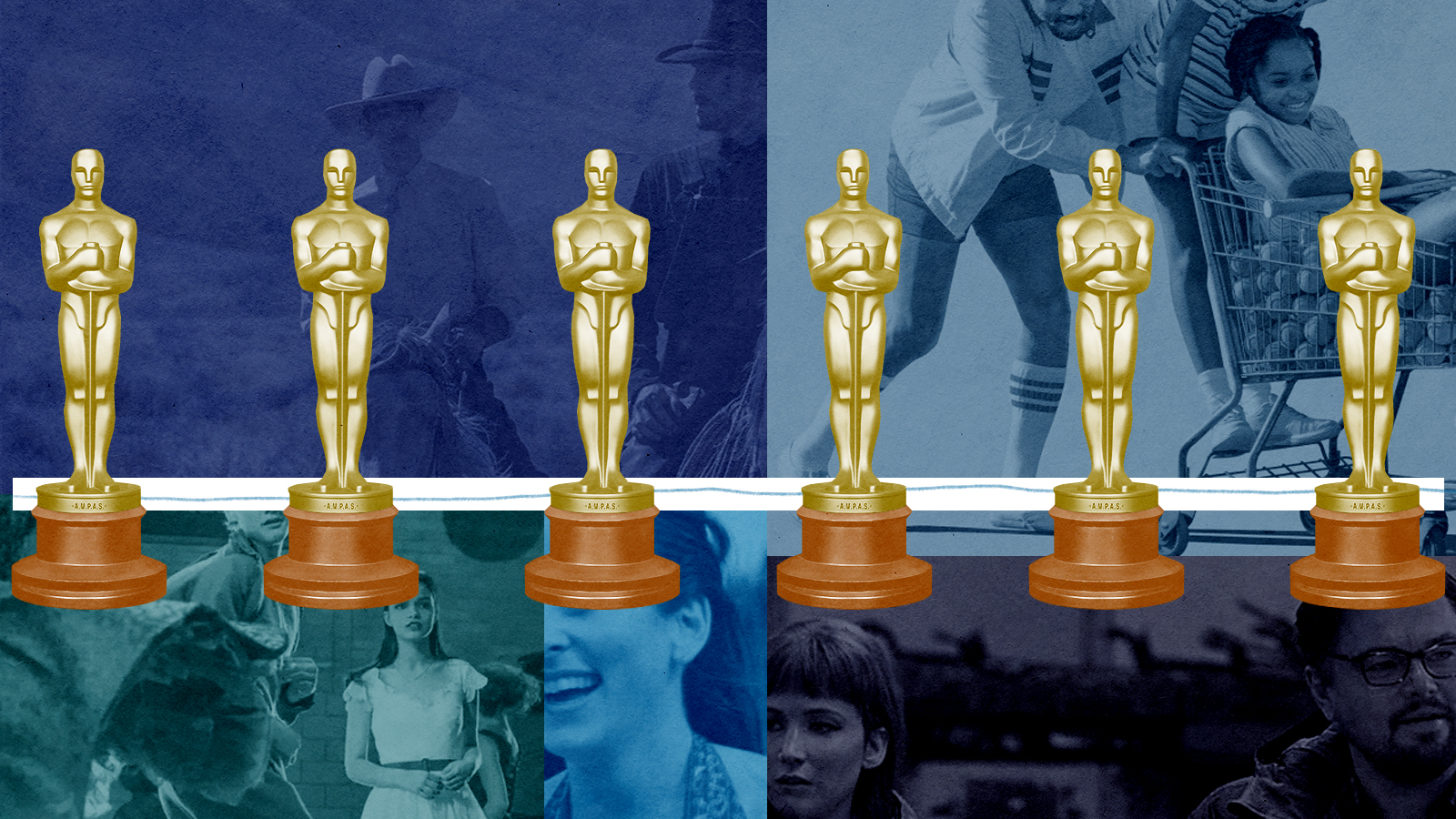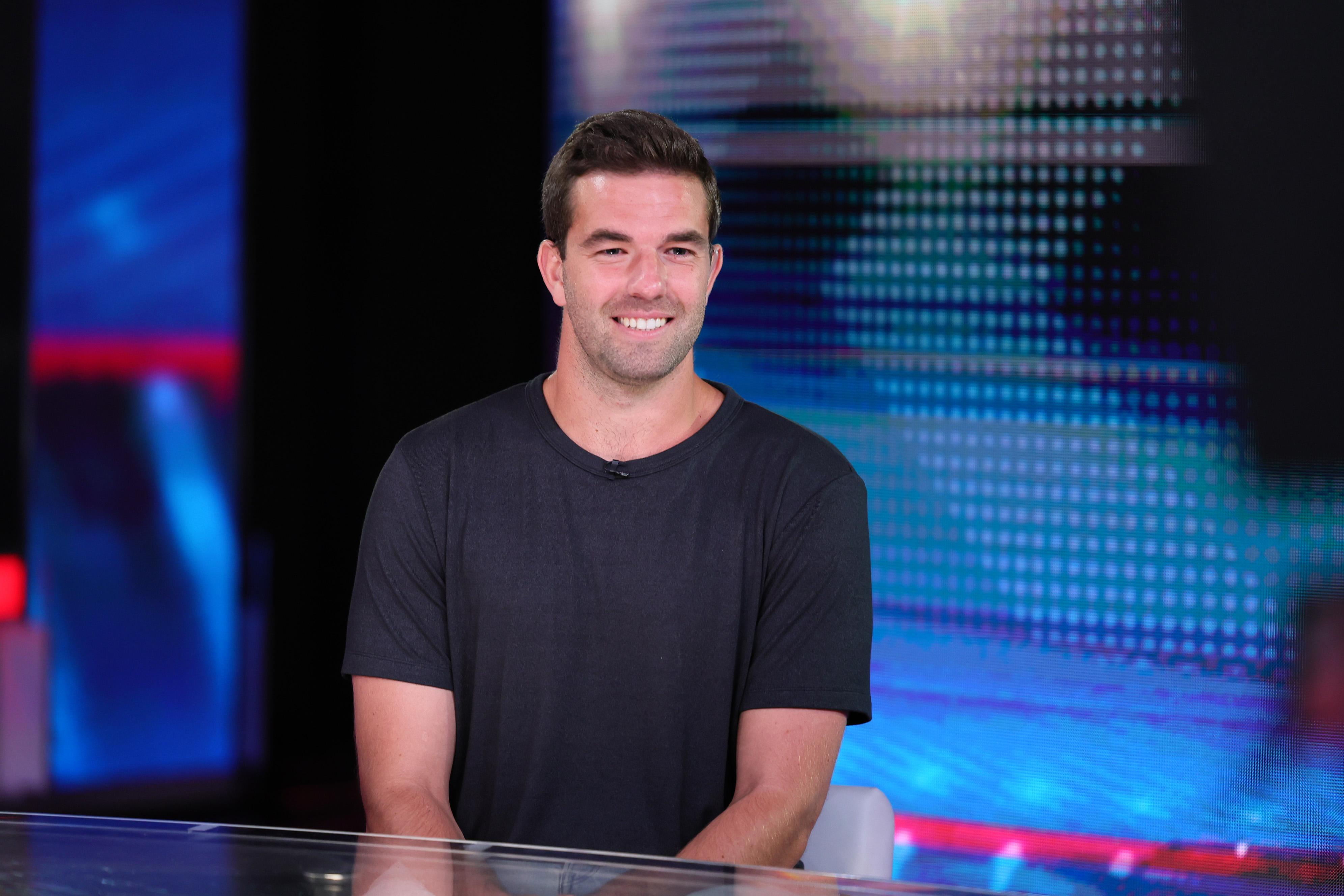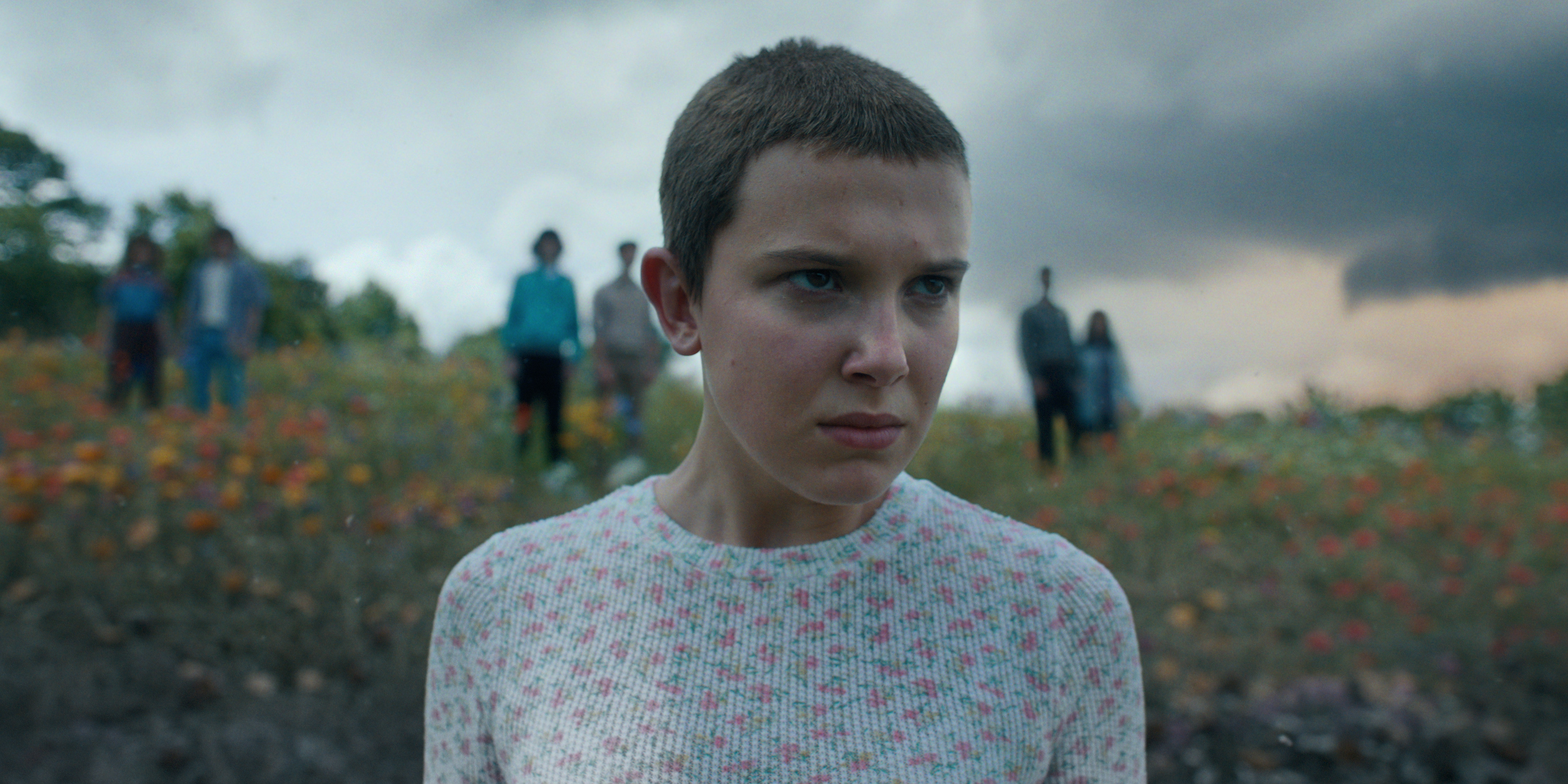The rise of the streamer, the return of the host, and other key narratives for the 2022 Oscars


A free daily email with the biggest news stories of the day – and the best features from TheWeek.com
You are now subscribed
Your newsletter sign-up was successful
The 2022 Oscars are set for March 27. Who are the likely winners, and what are the key narratives of this year's race?
What films are competing for Best Picture?
2022's Best Picture nominees are: The Power of the Dog, a Western examining toxic masculinity (streaming on Netflix); Belfast, a look at Northern Ireland in 1969 amid The Troubles (available on video-on-demand); CODA, the story of a hearing "child of deaf adults" who aspires to be a singer (streaming on Apple TV+); Don't Look Up, a star-studded end-of-the-world satire (streaming on Netflix); Drive My Car, a three-hour Japanese drama about a theater director grappling with grief (streaming on HBO Max beginning March 2); Dune, a big-budget adaptation of the classic sci-fi novel (available on video-on-demand); King Richard, a biopic about Venus and Serena Williams' father (available on video-on-demand); Licorice Pizza, a coming-of-age dramedy set in 1970s Los Angeles (playing in theaters); Nightmare Alley, a neo-noir about a carnival worker and con man (streaming on HBO Max and Hulu); and West Side Story, Steven Spielberg's musical remake (streaming on Disney+ and HBO Max beginning March 2).
The Week
Escape your echo chamber. Get the facts behind the news, plus analysis from multiple perspectives.

Sign up for The Week's Free Newsletters
From our morning news briefing to a weekly Good News Newsletter, get the best of The Week delivered directly to your inbox.
From our morning news briefing to a weekly Good News Newsletter, get the best of The Week delivered directly to your inbox.
The Power of the Dog, which has the most nominations, is the heavy favorite to win, and Belfast is generally seen as the next-in-line contender. But The Power of the Dog looks particularly dominant because Best Picture winners traditionally also are nominated for directing, screenwriting, editing, and acting. The Power of the Dog checked each of those boxes, but all the other films missed at least one of them. The Power of the Dog's Jane Campion is also expected to become the third woman to ever win Best Director.
Which actors are likely to win?
The Best Actor frontrunner appears to be Will Smith, who plays Richard Williams in King Richard and could earn the first Oscar of his career, though Benedict Cumberbatch is a strong contender for The Power of the Dog, and Andrew Garfield could be a dark horse for playing Rent creator Jonathan Larson in Netflix's Tick, Tick... Boom!. Best Actress, meanwhile, is a competitive race that could realistically go to any of the nominees: Jessica Chastain (The Eyes of Tammy Faye), Olivia Colman (The Lost Daughter), Penélope Cruz (Parallel Mothers), Nicole Kidman (Being the Ricardos) and Kristen Stewart (Spencer). Stewart was once seen as the frontrunner for playing Princess Diana, but some pundits have leaned more toward predicting Kidman, Colman, or Chastain, who unlike Stewart and Cruz were nominated at the Screen Actors Guild Awards.
The supporting actor races both appear to have frontrunners: The Power of the Dog's Kodi Smit-McPhee looks likely to win Best Supporting Actor, though CODA's Troy Kotsur could surprise and become the second deaf actor to win an Oscar, and Belfast's Ciarán Hinds is also in the mix. Finally, West Side Story's Ariana DeBose will probably win Best Supporting Actress for playing Anita, but don't count out The Power of the Dog's Kirsten Dunst or King Richard's Aunjanue Ellis.
A free daily email with the biggest news stories of the day – and the best features from TheWeek.com
What pre-Oscars ceremonies are worth keeping an eye on?
A number of awards shows scheduled for before the Oscars could help forecast the winners, namely the Screen Actors Guild Awards (Feb. 27), the Critics Choice Awards (March 13), the British Academy Film Awards (March 13), and the Producers Guild of America Awards (March 19). When it comes to the acting races, these precursor ceremonies can differ from the Oscars, but a performer winning when they weren't expected to — and giving a particularly memorable speech — can signal momentum may be shifting in their direction. In 2021, for example, some experts predicted Anthony Hopkins' shock Oscars upset over Chadwick Boseman because he surprisingly won at the BAFTAs. This year, the SAG Awards, in particular, should give us a better idea of where the Best Actress race is headed, especially since there's overlap between SAG and the Academy.
For predicting Best Picture, the most important ceremony to watch is the Producers Guild of America Awards, as since 2010, the PGA's top prize has lined up with Best Picture nine times.
What are the broader implications of this year's Best Picture race?
Best Picture going to The Power of the Dog would mark the first time a movie from Netflix — or any streaming service — earned the film industry's most prestigious award. Netflix has been vying for Best Picture for years, but there's been a sense among pundits that it has fallen short in part because some Academy voters viewed the streamer as a threat to movie theaters and traditional Hollywood studios. Its win, then, would be a symbolic moment underlining the entertainment industry's shift toward streaming, which has only been rapidly accelerated by the pandemic.
The Power of the Dog is also a slow burn and an at times enigmatic film that might require a second viewing to unpack, the kind of movie one would once have expected critics to praise while the Oscars awarded something more widely accessible and crowd-pleasing. But as the Academy has expanded its voting body in recent years, there's been an evolution in the kind of movie that can be named Best Picture, as evidenced by a film not in English, Parasite, winning for the first time in 2020. Plus, the fact that Drive My Car, a foreign film meditating on grief for a whopping three hours, became the first Japanese movie nominated for Best Picture and could even win a screenplay Oscar is another example of the evolving nature of the Academy, which has grown more international.
Have there been any controversies in the race?
Perhaps the most contentious nominee is Don't Look Up. The satire from Adam McKay (Vice, The Big Short) has been a major hit for Netflix but received mixed reviews, with some critics panning its climate change allegory as blunt and condescending while others praised it as smart and timely. The reaction has prompted a heated online debate, especially after some involved with the film pushed back forcefully against the negative reviews. It seems rather unlikely Don't Look Up will win Best Picture, but some critics have argued it could pull off a shock upset, which would provoke strong reactions on both sides, to say the least.
Other controversies include criticism over Licorice Pizza's depiction of the bond between an underage boy and an adult woman he has feelings for and a joke involving a white character speaking in an offensive fake Asian accent, while Being the Ricardos has been criticized for casting Javier Bardem, a Spanish actor, as a Cuban-American person, Desi Arnaz; Bardem is nominated for Best Actor.
Outside of the films themselves, reports that the Academy would not to require proof of vaccination to attend the ceremony sparked backlash — former Oscars host Seth MacFarlane called this a "colossal abdication of responsible management." After the criticism, the Academy said proof of vaccination would be required for guests and nominees, but not for performers or presenters. MacFarlane again criticized this decision, referencing his 2012 comedy by writing, "Seriously, Academy, you're higher than Ted."
How is the Academy trying to boost viewership?
Because the Oscars telecast has been steadily losing viewers, much of the conversation surrounding the ceremony has centered around how it can regain its relevance. The Academy's latest attempt to do so was encouraging fans to vote for their favorite film of the year online. The movie that gets the most votes will be honored during the ceremony, an apparent attempt to reel in viewers with the promise a blockbuster like Spider-Man: No Way Home could have a presence. (No Way Home, a massive box office hit, was only nominated for Best Visual Effects.)
And although the Oscars have had no host since 2018, there will be three this year: Regina Hall, Amy Schumer and Wanda Sykes. The hope is that three hosts can "attract different demographics to the flagging ABC telecast," The Hollywood Reporter said. But considering virtually every major awards show has seen a decline in the ratings, it's an open question whether the Academy can do anything to reverse this trend — or if the days when the Oscars could draw tens of millions of viewers will simply never return.
Brendan worked as a culture writer at The Week from 2018 to 2023, covering the entertainment industry, including film reviews, television recaps, awards season, the box office, major movie franchises and Hollywood gossip. He has written about film and television for outlets including Bloody Disgusting, Showbiz Cheat Sheet, Heavy and The Celebrity Cafe.
-
 The ‘ravenous’ demand for Cornish minerals
The ‘ravenous’ demand for Cornish mineralsUnder the Radar Growing need for critical minerals to power tech has intensified ‘appetite’ for lithium, which could be a ‘huge boon’ for local economy
-
 Why are election experts taking Trump’s midterm threats seriously?
Why are election experts taking Trump’s midterm threats seriously?IN THE SPOTLIGHT As the president muses about polling place deployments and a centralized electoral system aimed at one-party control, lawmakers are taking this administration at its word
-
 ‘Restaurateurs have become millionaires’
‘Restaurateurs have become millionaires’Instant Opinion Opinion, comment and editorials of the day
-
 The video game franchises with the best lore
The video game franchises with the best loreThe Week Recommends The developers behind these games used their keen attention to detail and expert storytelling abilities to create entire universes
-
 The buzziest movies from the 2023 Venice Film Festival
The buzziest movies from the 2023 Venice Film FestivalSpeed Read Which would-be Oscar contenders got a boost?
-
 America's troubling school bus driver shortage
America's troubling school bus driver shortageSpeed Read Kids are heading back to school, but they might be having trouble getting a ride
-
 5 college admissions trends to watch out for this year
5 college admissions trends to watch out for this yearSpeed Read College advisers and admissions experts say these trends will shape the 2023-2024 admissions cycle
-
 What's going on with Fyre Festival II?
What's going on with Fyre Festival II?Speed Read Convicted felon Billy McFarland claims the music festival will happen, for real this time
-
 The answer to rising home prices: smaller homes
The answer to rising home prices: smaller homesSpeed Read Builders are opting for fewer rooms and more attached styles as frustrated homebuyers look for affordable options
-
 5 illuminating books about the video game industry
5 illuminating books about the video game industrySpeed Read Cozy up with a few reads that dig into some of the most fascinating parts of video game history
-
 Everything we know about the final season of 'Stranger Things'
Everything we know about the final season of 'Stranger Things'Speed Read The Netflix hit will turn things up to eleven in its final bow ... eventually
